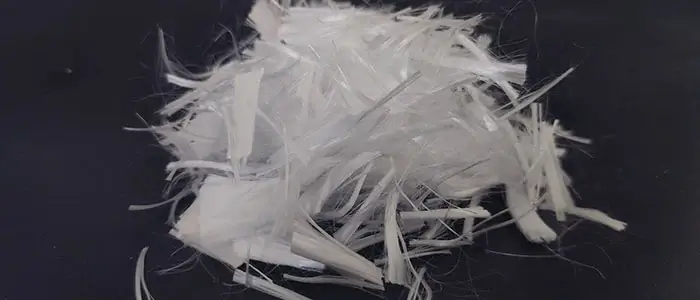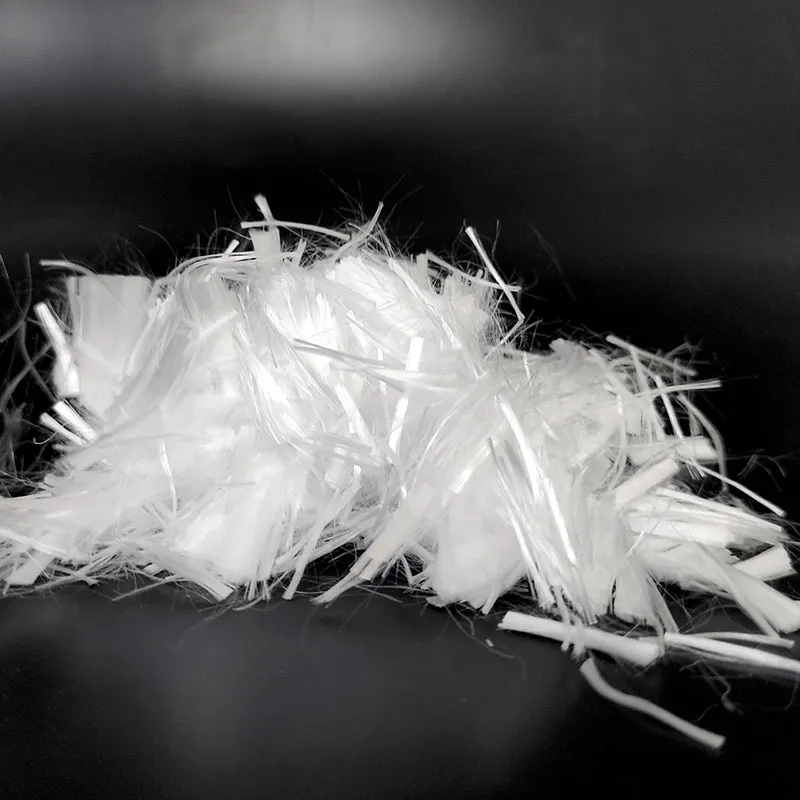What is Polypropylene Fiber?

Polypropylene fiber is a type of synthetic fiber made from polypropylene, a thermoplastic polymer widely known for its versatility and cost-effectiveness. In the construction, textile, and industrial sectors, this fiber plays an essential role because of its excellent durability, chemical resistance, and lightweight properties. Unlike traditional glass or steel fibers, polypropylene fibers do not corrode or react easily with other materials, making them ideal for reinforcing concrete, asphalt, and plaster, as well as for use in nonwoven fabrics and various industrial applications.
Polypropylene fibers are engineered to improve the performance and durability of a wide range of products. They help reduce cracking, increase impact resistance, and improve the structural integrity of materials they are added to—especially in construction and infrastructure projects.
Types of Polypropylene Fiber
1. PP Macro Fibers
PP macro fibers are large-diameter synthetic fibers typically used to replace steel mesh or wire reinforcement in concrete. They provide structural reinforcement, improving the toughness and load-bearing capacity of concrete. These fibers help control cracking caused by shrinkage and temperature changes, while also increasing impact and fatigue resistance.
Macro fibers are especially suitable for industrial floors, tunnel linings, shotcrete, precast concrete elements, and other heavy-duty applications where high tensile strength and long-term durability are required.

2. Microfibers
Micro polypropylene fibers are extremely fine, usually less than 18 microns in diameter. They are primarily used to control plastic shrinkage cracking in concrete during its early curing stages. Microfibers are distributed uniformly throughout the mix, creating a three-dimensional reinforcement system that helps prevent micro-cracks from forming and spreading.
They are often used in plastering, residential flooring, overlays, and decorative concrete because they do not significantly affect the surface finish while enhancing crack resistance.

3. Fibrillated Fiber
Fibrillated polypropylene fibers are made in a net-like or mesh structure. When mixed into concrete or mortar, these fibers spread out to form a network that effectively holds the material together. This structure provides improved bonding and increases resistance to shrinkage cracks.
Fibrillated fibers are particularly common in thin concrete applications, overlays, pavements, and precast elements. Their unique texture improves cohesion and reduces bleeding in the mix.

4. Twisted Macro Synthetic Fiber
Twisted macro synthetic fibers are a specialized type of macro fiber with a twisted or crimped design. This design enhances their mechanical anchorage within concrete, offering superior post-crack load-bearing capacity compared to straight fibers.
They are an excellent alternative to steel fibers, as they offer high strength, corrosion resistance, and easier handling. Twisted macro synthetic fibers are used in demanding applications like tunnels, industrial floors, and mining operations where long-term performance and safety are priorities.

Benefits of Polypropylene Fiber
Polypropylene fiber is widely chosen because it offers numerous advantages over traditional reinforcement materials:
1. Crack Reduction:
It minimizes both plastic shrinkage and drying shrinkage cracks in concrete, ensuring a longer-lasting and more durable structure.
2. Corrosion Resistance:
Unlike steel, polypropylene fibers do not rust, ensuring long-term performance even in aggressive environments such as marine or chemical facilities.
3. Improved Impact and Fatigue Resistance:
It enhances the toughness of materials, helping them withstand repeated stress, vibration, or impact.
4. Lightweight and Easy to Handle:
Polypropylene fibers are light, easy to transport, and do not require special handling equipment.
5. Cost-Effective:
They reduce the need for steel mesh or rebar in many applications, lowering both material and labor costs.
6. Uniform Distribution:
When mixed into concrete or mortar, the fibers disperse evenly, creating a three-dimensional reinforcement network that improves structural integrity.
Applications of Polypropylene Fiber for Concrete
Polypropylene fibers are used across a wide range of industries and projects due to their adaptability and performance:
- Concrete Reinforcement:
Widely used in industrial floors, pavements, tunnels, bridges, precast elements, and shotcrete applications.
- Plaster and Mortar:
Enhances crack resistance and durability in wall renders, plastering, and overlays.
- Roads and Highways:
Used in asphalt and concrete pavements to improve fatigue life and reduce cracking.
- Mining and Tunneling:
Improves shotcrete performance and enhances safety in underground construction.
- Precast Products:
Utilized in pipes, panels, tiles, and blocks for increased strength and reduced damage during handling and transport.
- Residential Construction:
Common in driveways, foundations, swimming pools, and decorative concrete works to enhance long-term durability.
Polypropylene Fiber Supplier – Why Choose TenaBrix?
When selecting a polypropylene fiber supplier, quality, reliability, and technical expertise matter. TenaBrix is a trusted brand specializing in high-performance polypropylene fibers tailored for construction and industrial applications.
As a manufacturer with advanced production technology, TenaBrix ensures every fiber meets international standards for consistency, strength, and safety. Our team provides comprehensive support—from selecting the right fiber type to customizing formulations for your unique project needs.
Why TenaBrix stands out:
- Proven Expertise: Years of industry experience supplying to global infrastructure, commercial, and residential projects.
- High-Quality Standards: Rigorous testing and quality control ensure reliable fiber performance.
- Sustainable Production: We follow environmentally responsible manufacturing practices.
- Tailored Solutions: Custom fiber options to match specific project requirements.
- Global Service Network: Fast delivery and technical support wherever your project is located.
Choosing TenaBrix means choosing long-lasting performance, reduced maintenance costs, and confidence in every structure you build. Please contact us if you need any assistance.

